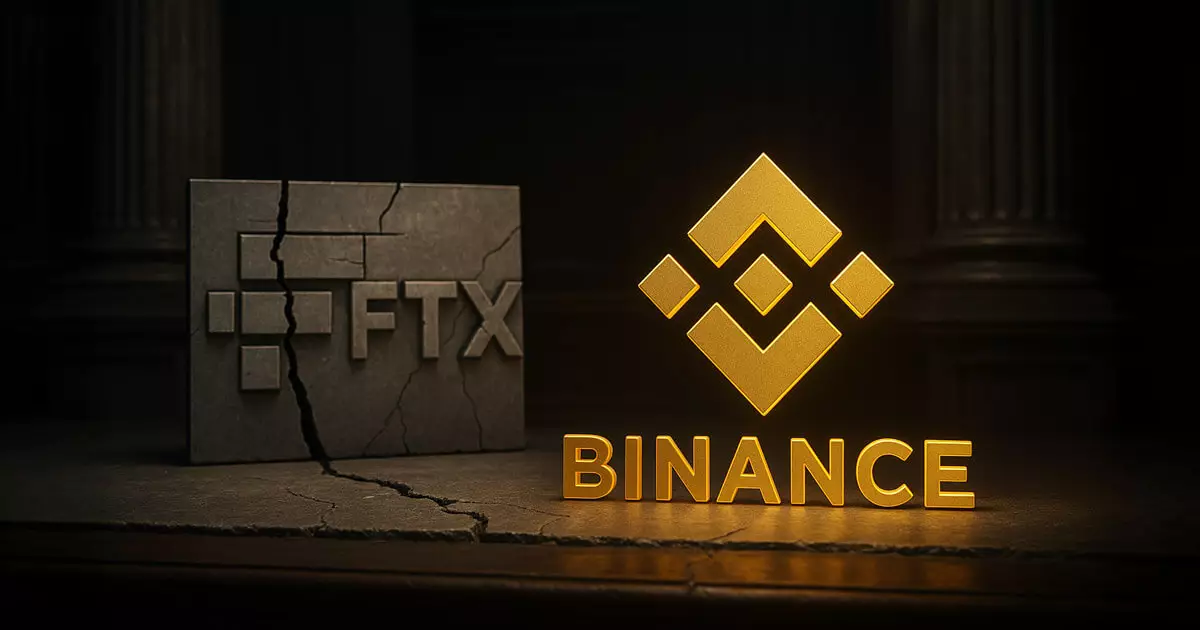In the complex world of cryptocurrency, where regulations are often murky and jurisdictional boundaries blurred, the legal tussle between Binance and FTX has shed light on critical issues that may redefine how crypto exchanges operate globally. Binance’s motion to dismiss FTX’s hefty $1.76 billion lawsuit is not merely a defensive maneuver; it’s a crucial assertion of jurisdictional principles that could have far-reaching implications. By arguing that the U.S. court lacks authority over foreign entities and emphasizing that none of the defendants reside on American soil, Binance is essentially challenging the legal precedent that could allow U.S. courts to exert influence over international firms. This may establish a stronger foundation for other crypto entities to operate with increased legal autonomy, resisting U.S. jurisdictional overreach.
Challenging Assumptions: The Question of Insolvency
Central to Binance’s defense is a powerful critique of FTX’s claims of insolvency at crucial times. Binance argues not only that FTX was not demonstrably insolvent in July 2021 but that this narrative is fundamentally flawed. If true, the implications are staggering. Assertively stating that FTX’s collapse was due to “one of the most massive corporate frauds in history,” Binance is indirectly drawing attention to the broader issues of financial integrity and accountability in the crypto sector. Such an assertion not only undermines FTX’s claims but also emphasizes the need for a deeper examination of corporate governance within cryptocurrency exchanges. This scrutiny is essential; without it, investors may be misled, and the ecosystem’s stability jeopardized.
Public Communication: A Case of Misinterpretation?
Another striking aspect of Binance’s defense is its rebuttal to allegations concerning CEO Changpeng Zhao’s social media activity. Accused of instigating a bank run with his tweets, Zhao’s ability to affect market dynamics serves as a case study in the responsibilities of public figures in this digital age. Binance asserts that the statements made were transparent and non-misleading, feeding into a larger narrative about the responsibilities of leaders in a decentralized world. It raises a significant question about the extent to which leaders in crypto should be held accountable for market reactions to their public communications—a consideration that can redefine operational transparency and ethical conduct within the industry.
A Broader Implication for Market Dynamics
The implications of Binance’s legal strategies extend beyond the courtroom; they reach into the very framework of market dynamics within cryptocurrency. By asserting that its decision to liquidate FTT holdings was not aimed at undermining FTX but rather a response to market risks, Binance reframes the narrative of culpability. This stance places the onus on FTX, urging stakeholders to understand that caution in investment does not equate to malice. Furthermore, it emphasizes the need for a more nuanced understanding of risk management within the crypto realm—a lesson that could serve investors and companies alike.
Ultimately, this legal battle is more than a squabble over finances; it is a decisive moment that could shape the regulatory landscape of cryptocurrency for years to come. The outcomes will not only determine the fate of both exchanges but could also forge the future of how international laws govern digital finance. The stakes couldn’t be higher.


















Leave a Reply